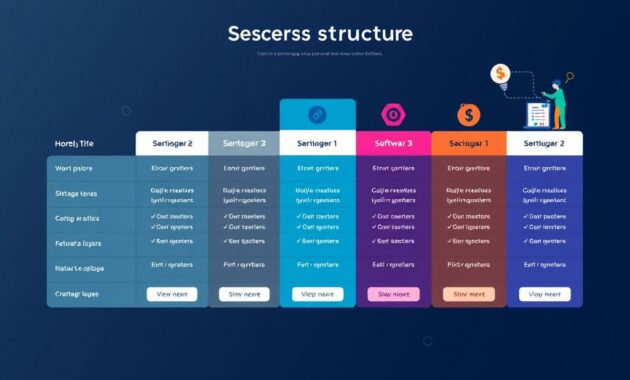In the current business environment, entities aim to elevate their operational prowess and stimulate expansion. NetSuite is distinguished as a leading cloud software, serving as a paramount Enterprise Resource Planning (ERP) solution. It is crafted to fulfill a wide array of business necessities. This empowers you to optimize business efficiency and harmonize processes across diverse departments, positioning you at the forefront of the competitive arena.
The transformative essence of cloud ERP systems positions NetSuite is beyond mere software; it embodies a holistic platform. It facilitates strategic decision-making and enables your enterprise to rapidly respond to evolving market exigencies. The initiation of growth and operational superiority commences here.
What Is NetSuite?
NetSuite represents a paradigm shift in the realm of cloud-based solutions, emerging as a pivotal ERP system. It is engineered to optimize diverse business operations, thereby facilitating a unified and efficient workflow. This software is designed to integrate multiple business functions seamlessly, ensuring that all aspects of an organization are harmoniously connected for enhanced productivity.
A Comprehensive Overview
This platform empowers businesses to oversee their financial activities, manage orders, control inventory, and nurture customer relationships within a single, unified environment. NetSuite’s adaptability is noteworthy, catering to enterprises of varying scales by allowing for bespoke configurations to align with their unique operational requirements.
Key Features and Modules
The ERP system boasts several distinctive attributes:
- Financial Management: A comprehensive module that encompasses budgeting, forecasting, and detailed reporting functionalities.
- CRM: Equipped with tools for the effective management of customer interactions, sales tracking, and marketing automation.
- E-commerce: Offers integrated solutions for the management of online sales and customer engagement.
- Order Management: Features streamlined processes for the fulfillment and tracking of orders.
- Inventory Management: Enables real-time monitoring of stock levels and facilitates supply chain management.
The Benefits of Using NetSuite
Adopting NetSuite can profoundly alter your business’s operational dynamics, unlocking a plethora of advantages. This all-encompassing platform is engineered to elevate operational efficiency, refine financial oversight, and offer adaptable solutions tailored for burgeoning enterprises.
Enhance Efficiency and Productivity
NetSuite emerges as a pivotal instrument for augmenting productivity by centralizing data and automating mundane tasks. By streamlining processes, your team can redirect its efforts towards more strategic endeavors, thus accelerating decision-making and enhancing overall operational efficacy.
Improve Financial Management
NetSuite’s prowess in financial management is noteworthy, offering real-time reporting and analytics that provide critical insights into your financial standing. With immediate access to precise data, you are empowered to make informed decisions that resonate with your company’s goals and strategic growth plans.
Scalability for Growing Businesses
NetSuite’s scalability is a hallmark, making it a preferred choice for both nascent startups and expansive corporations. As your enterprise expands, NetSuite can seamlessly adapt to your evolving requirements, obviating the need for a comprehensive system overhaul. This adaptability guarantees that you possess the requisite tools to facilitate your growth trajectory.
How NetSuite Streamlines Business Operations
NetSuite emerges as a pivotal instrument, profoundly augmenting the operational dynamics of your enterprise. It facilitates real-time data accessibility and ensures a seamless integration across disparate functions, thereby empowering you to execute decisions with alacrity. This capability catalyzes an enhancement in operational efficacy, an imperative for businesses aspiring to excel in the fiercely competitive milieu of today.
Real-Time Data Access
NetSuite’s core tenet revolves around the provision of real-time data access, a linchpin for efficacious management. It enables you to scrutinize pivotal performance metrics and recalibrate strategies with expediency. This immediate access to your business’s operational metrics fortifies your capacity to adapt to market fluctuations and internal hurdles. Whether it pertains to inventory monitoring or sales trend analysis, the availability of instantaneous data empowers you to make more astute decisions.
Automation of Routine Tasks
In the realm of task automation, NetSuite distinguishes itself, facilitating the streamlining of sundry business processes. By automating mundane tasks, you mitigate the likelihood of human error and liberate precious time for more strategic endeavors. With the automation of tasks ranging from invoicing to customer follow-ups, your team is freed to concentrate on growth and innovation, unencumbered by the drudgery of routine tasks.
Why Choose NetSuite Over Competitors?
The selection of an Enterprise Resource Planning (ERP) system is paramount for a company’s prosperity. NetSuite emerges as a preferred option for numerous entities, distinguished by its superior attributes vis-à-vis rival platforms. Its cloud-based framework, all-encompassing suite of management applications, and extensive customization capabilities confer a distinct competitive edge.
Unique Selling Points
NetSuite is celebrated for its singular attributes that empower users to optimize their operational workflows. Its standout features encompass:
- Cloud-Based Platform: Enables access to data at any time and from any location, fostering flexibility and user convenience.
- Comprehensive Management Applications: Offers a unified platform for financial management, inventory control, and more, catering to diverse business needs.
- Customization Options: Allows for the platform’s adaptation to specific business requirements, ensuring optimal performance.
Customer Success Stories
Testimonials from real-world customers underscore the transformative impact of NetSuite on businesses. Across various industries, companies have witnessed enhanced operational efficiency and growth post-adoption. User feedback emphasizes:
- Swift deployment that minimizes disruption.
- Improved data visibility, facilitating more informed decision-making.
- Scalable infrastructure supporting sustained business expansion.
NetSuite for Different Industries
NetSuite’s adaptability is unparalleled, offering bespoke solutions for diverse sectors such as retail, manufacturing, and professional services. By leveraging industry-specific functionalities, enterprises can significantly boost operational efficiency and performance.
Retail and E-Commerce
In the retail domain, NetSuite revolutionizes inventory management and elevates customer satisfaction. It empowers businesses to monitor sales, manage stock levels in real-time, and streamline the order fulfillment process. These functionalities contribute to enhanced customer satisfaction and superior sales performance.
Manufacturing Solutions
NetSuite addresses the intricate challenges of production and supply chain management in manufacturing. It enables organizations to oversee production schedules, manage inventory with precision, and swiftly adapt to market fluctuations. Numerous manufacturers attest to the platform’s role in curtailing lead times and enhancing product quality.
Professional Services Adaptations
Professional services firms benefit substantially from NetSuite’s advanced project management functionalities. By adopting industry-specific solutions, these entities can optimize resource allocation, track project profitability, and ensure prompt service delivery. This has a direct positive impact on operational efficiency, driving overall growth.
| Industry | Key Benefits of NetSuite |
|---|---|
| Retail and E-Commerce | Optimized inventory, improved customer experience, real-time sales tracking |
| Manufacturing | Enhanced production schedules, better inventory management, reduced lead times |
| Professional Services | Effective resource allocation, project tracking, improved service delivery |
Pricing and Packages Available
An examination of NetSuite’s pricing structure is crucial for making a decision that aligns with your business’s specific needs. NetSuite accommodates a spectrum of business sizes with its adaptable ERP subscription models. This flexibility ensures that both nascent start-ups and mature enterprises can find a package that fulfills their distinct requirements.
Subscription Models Explained
NetSuite presents a variety of subscription models, each tailored to meet the needs of different organizational sizes and operational requirements. The available tiers typically encompass:
- Basic Tier: Designed for startups, offering limited features but comprehensive capabilities.
- Standard Tier: Suitable for burgeoning businesses requiring more advanced functionalities.
- Advanced Tier: Catering to larger enterprises with extensive customization and integration needs.
Cost-Effective Solutions for Small Businesses
NetSuite offers cost-effective solutions for small businesses, providing substantial value without financial strain. These packages are crafted with essential features, ensuring functionality without undue complexity. Key benefits include:
- Monthly Subscription Options: Flexible payment plans that facilitate better cash flow management.
- Annual Subscriptions: Potential for cost savings compared to monthly plans.
- Tiered Options: Allowing businesses to invest in only the most critical tools.

Getting Started with NetSuite
Initiating your journey with NetSuite heralds a pivotal moment for your enterprise. Mastery of the implementation process is imperative for seamless integration into your operations. This segment delves into the intricacies of the setup procedure and the plethora of resources dedicated to training and support.
Implementation Process Explained
The implementation of NetSuite encompasses several critical phases, designed to ensure your organization harnesses its full potential. Below is a detailed outline of the necessary steps:
- Initial Assessment: Conduct a thorough review of your current processes and articulate your objectives for leveraging NetSuite.
- System Configuration: Tailor the platform to align with your business needs, adhering to NetSuite’s best practices.
- Data Migration: Seamlessly transfer your existing data into the new system, facilitated by comprehensive implementation guidance.
- User Training: Offer extensive ERP training to your staff, ensuring they are proficient in utilizing the system.
- Go Live: Initiate real-time operations, with support teams actively monitoring the transition phase.
Training and Support Resources
To fully exploit NetSuite’s capabilities, access to comprehensive training and customer support is essential. Consider the following:
- Online Training Modules: NetSuite provides a range of online courses, each focusing on specific aspects of the system, tailored to your specific requirements.
- Community Forums: Engage with other users on forums to share experiences and solutions for common issues.
- Dedicated Support Team: Leverage customer support for immediate assistance throughout your implementation and beyond.
- Documentation: Utilize detailed documentation to gain a comprehensive understanding of features and best practices.
Customizing Your NetSuite Experience
Optimizing your NetSuite experience through customization is paramount for aligning operations with your distinct business requirements. NetSuite’s flexibility empowers you to craft personalized dashboards and reports, thereby concentrating on the data that is most critical to your enterprise. This adaptability is instrumental in streamlining your operations.
Tailored Dashboards and Reports
Personalized dashboards grant your team immediate access to pivotal metrics and insights, tailored to their specific roles. This capability significantly enhances decision-making efficacy and boosts productivity. By leveraging NetSuite’s customization options, you can curate dashboards that present relevant data succinctly. Access to sales metrics, inventory levels, or project timelines at your fingertips is pivotal for enhancing operational efficiency.
Integrating with Existing Software
Seamless software integration is essential for maintaining uninterrupted business processes. NetSuite’s compatibility with a broad spectrum of applications facilitates effortless integration of existing software solutions into your ecosystem. This integration fosters a unified view of your operations, centralizing data from disparate sources. Such integration not only optimizes workflow efficiency but also diminishes the risk of errors associated with transitioning between different systems.
Common Challenges When Using NetSuite
The adoption of NetSuite represents a pivotal transformation for numerous enterprises. However, this transition is accompanied by specific challenges that organizations encounter at various junctures. Grasping the intricacies of these obstacles, particularly the learning curve and data migration issues, is crucial for a seamless integration process.
Navigating the Initial Learning Curve
The vast array of features within NetSuite frequently results in a pronounced learning curve. Users may encounter a sense of overwhelm due to the multitude of functionalities available. Acquainting oneself with the platform’s interface necessitates a considerable investment of time. Effective strategies to mitigate this challenge include:
- Utilizing training resources provided by NetSuite to establish a robust foundation.
- Engaging with support communities, which offer invaluable insights and practical tips.
- Implementing a gradual onboarding process for teams, facilitating a more manageable adaptation.
Data Migration Issues
Data transition problems are prevalent when integrating NetSuite into your existing business framework. Ensuring the accurate migration of your data, without loss or corruption, demands meticulous planning. Key considerations to address include:
- Conducting a comprehensive data audit prior to migration to identify and rectify any issues.
- Developing a structured migration plan that outlines each step of the process.
- Testing data in a sandbox environment before going live to confirm its accuracy.

Success Metrics: Measuring NetSuite’s Impact
To comprehend NetSuite’s influence on your enterprise, it is imperative to concentrate on pivotal performance metrics. The ability to monitor and adjust based on the right KPIs is fundamental. NetSuite offers a suite of tools for KPI tracking, furnishing indispensable insights into your organization’s operational efficacy.
Key Performance Indicators to Track
Choosing the correct key performance indicators is paramount for success measurement. Consider the following critical KPIs:
- Revenue Growth: Observe shifts in total income to gauge your business’s financial vitality.
- Customer Acquisition Cost (CAC): Assess the expenditure on acquiring each new customer, facilitating more informed budgetary decisions.
- Customer Retention Rate: Monitor the percentage of repeat customers to gauge loyalty levels.
- Inventory Turnover: Examine the frequency of inventory sales and replacements within a given timeframe.
- Operational Efficiency: Analyze productivity metrics such as order fulfillment speed and employee utilization rates.
Case Studies of Improved Performance
Studying case studies can unveil NetSuite’s transformative capabilities. Numerous enterprises have witnessed substantial performance enhancements post-implementation, showcasing its versatility across various industries:
- Retail: A clothing retailer augmented sales by 25% annually by optimizing inventory management with NetSuite’s functionalities.
- Manufacturing: A manufacturing entity decreased operational expenses by 15% through enhanced KPI tracking, leading to waste reduction.
- Professional Services: A consulting firm expedited project completion by 30% by leveraging real-time data for more informed decision-making.
Future Trends in ERP Solutions
The trajectory of technological advancements and business methodologies is undergoing a transformative phase, heralding an era of unprecedented opportunities for ERP solutions. NetSuite stands at the vanguard of this revolution, particularly within the domain of cloud technology. The paradigm shift towards cloud-based systems is gaining momentum, driven by their inherent flexibility, scalability, and cost-effectiveness. This transformation is redefining operational landscapes, facilitating real-time data access and fostering seamless interdepartmental collaboration.
NetSuite’s Role in Cloud Computing
NetSuite is a trailblazer in the integration of cloud technology into enterprise resource planning. Its provision of a comprehensive cloud solution has streamlined processes and amplified efficiency across diverse business spectrums. As ERP trends gravitate towards more cohesive systems, NetSuite’s innovations are centered on performance optimization and user-centric design. This adaptability will be crucial as businesses navigate the complexities of an ever-changing market landscape.
Innovations on the Horizon
On the horizon, ERP systems are poised to incorporate advanced analytics, artificial intelligence, and machine learning. These innovations will empower enterprises to make informed decisions with unprecedented speed and precision. As you contemplate the future of your business, embracing these cutting-edge technologies will significantly bolster your operational prowess, positioning you to adeptly address the forthcoming challenges.



